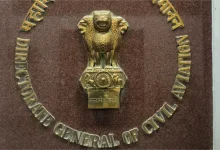
New Delhi : Ex-narcotics officer Sameer Wankhede has gone to Delhi High Court against the Netflix series, The Bads of Bollywood and Shah Rukh Khan over his portrayal in the Aryan Khan-directed web series.
A statement from Wankhede read, “Sameer Wankhede, IRS Officer, has filed a defamation suit before the Delhi High Court seeking reliefs in the nature of permanent and mandatory injunction, declaration, and damages against Red Chillies Entertainment Pvt Ltd, owned by actor Shah Rukh Khan and Gauri Khan, the OTT platform, Netflix and others, having been aggrieved by a false, malicious, and defamatory video produced by Red Chillies and broadcast by Netflix as part of their television series titled The Bads of Bollywood.
“This series disseminates a misleading and negative portrayal of anti-drug enforcement agencies, thereby eroding public confidence in law enforcement institutions,” read the statement. In the first episode of The Ba***ds of Bollywood, a character, heavily inspired by Sameer Wankhede, lands up outside a Bollywood party, looking for people from “Bollywood”, “who are doing drugs”.
Since the series began streaming on Netflix on September 18, social media has gone into an overdrive drawing parallels between Sameer Wankhede and the sequence in the series. In his statement, Wankhede has claimed that The Ba***ds of Bollywood has been “deliberately conceptualised and executed with the intent to malign Sameer Wankhede’s reputation in a colourable and prejudicial manner.”
“Especially when the case involving Sameer Wankhede and Aryan khan is pending and sub-judice before the Hon’ble Bombay High Court and the NDPS Special Court, Mumbai,” Wankhede’s statement to the media read.
“Furthermore, the series, inter alia, depicts a character making an obscene gesture–specifically, showing a middle finger after the character recites the slogan “Satyamev Jayate” which is the part of the National Emblem. This act constitutes a grave and sensitive violation of the provisions of the Prevention of Insults to National Honour Act, 1971, which attracts penal consequences under law,” continued Wankhede’s statement.




